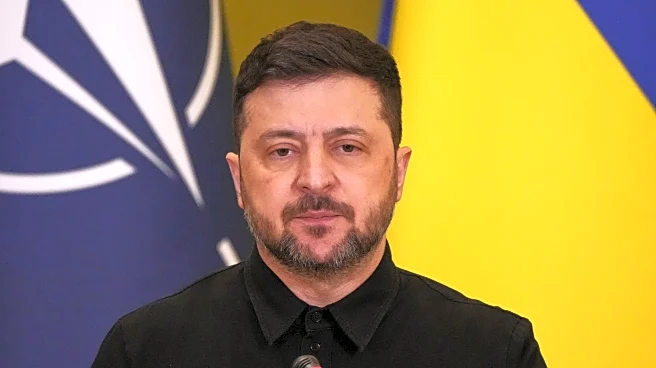What's Happening?
Mayor Jacob Frey has secured a third term as the mayor of Minneapolis after a closely contested election against state Senator Omar Fateh. The election results were finalized after second-choice votes were tabulated, with Frey emerging victorious with 50%
of the total votes. Initially, Frey led with a 10-point advantage in first-choice votes, securing 42% compared to Fateh's 32%. The election saw a record voter turnout, with 55% of the city's registered voters participating. Frey's victory speech highlighted his lead in first-choice votes, while Fateh expressed gratitude to his supporters and pledged to continue advocating for change. The election also featured other Democratic challengers, Dewayne Davis and Jazz Hampton, who were eliminated after the first round of voting.
Why It's Important?
The reelection of Jacob Frey as mayor of Minneapolis is significant as it reflects the city's political landscape and voter priorities. Frey's administration has been marked by efforts to reform the Minneapolis Police Department, a contentious issue following high-profile incidents in recent years. His victory suggests continued support for his policies, including crime reduction and homelessness initiatives. Conversely, Fateh's campaign focused on increasing public services and implementing rent control, indicating a push for more progressive policies among some voters. The high voter turnout underscores the community's engagement in shaping the city's future, with implications for local governance and policy direction.
What's Next?
As Jacob Frey begins his third term, he is expected to continue his focus on police reform and addressing homelessness, as indicated by his campaign promises. The administration will likely face scrutiny from progressive groups advocating for more substantial changes. Frey's commitment to reforms established by a federal consent decree, despite its abandonment by President Trump's Justice Department, will be a focal point. The city may also see debates over proposed policies like rent control and property tax adjustments, as advocated by Fateh and his supporters. The outcome of these discussions could influence Minneapolis's approach to housing and public services in the coming years.
















